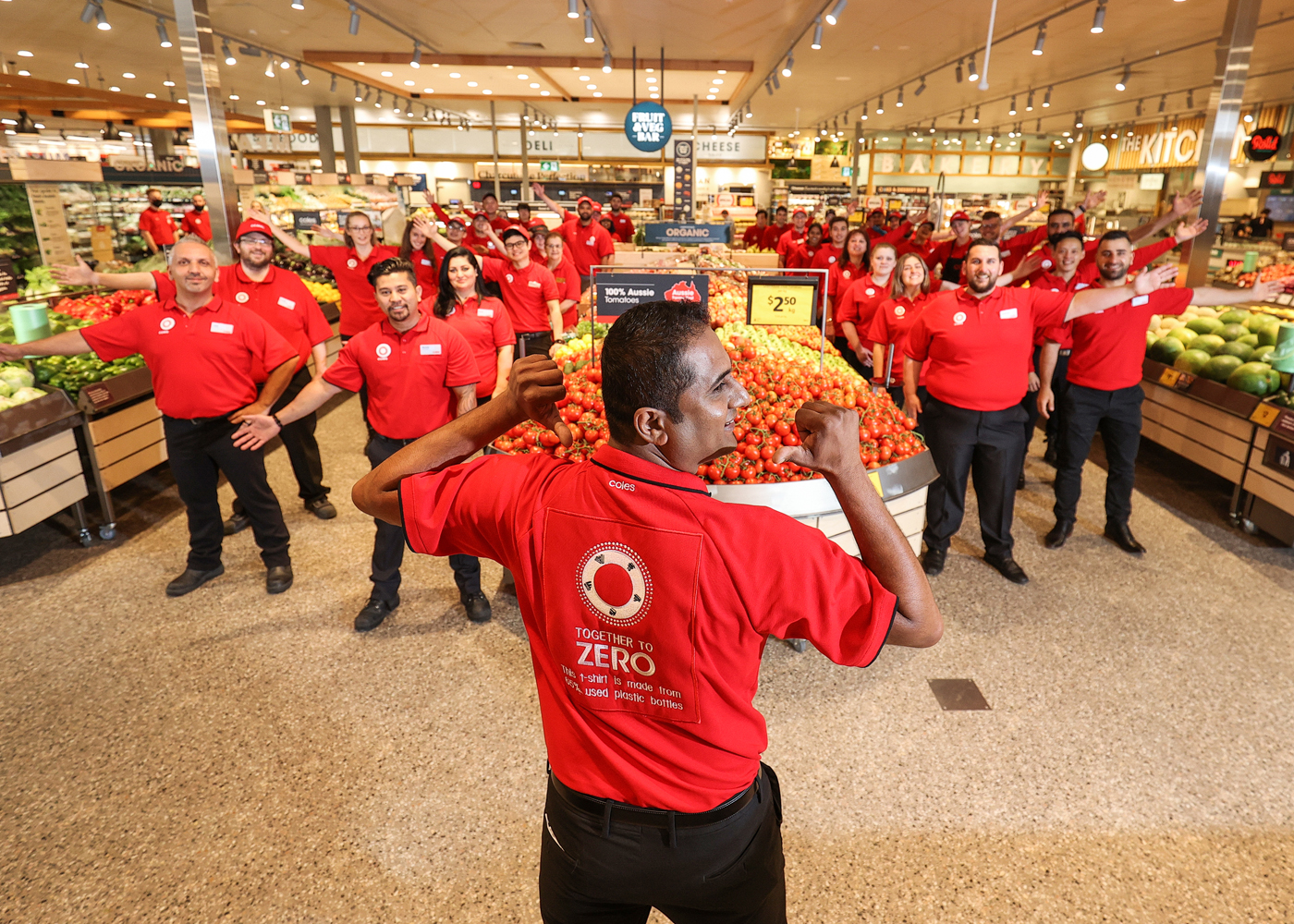Coles Group is celebrating World Environment Day by forging ahead on its Together to Zero sustainability strategy launched in March. Coles has a long-term aspiration towards zero emissions, zero waste and zero hunger, striving to find ways to reduce waste, reduce greenhouse gas emissions and help Australians in need.
Coles is celebrating 10 years working with food rescue organisation SecondBite and soft plastics recycler REDcycle. Together Coles and SecondBite have helped provide the equivalent of more than 145 million meals to Australians in need and, with REDcycle, collected more than 1.5 billion pieces of soft plastics to be used in furniture, children's playground equipment, roads and even Coles carparks.
Coles Group has made meaningful progress on its commitment to be powered by 100% renewable electricity by the end of FY25 as part of its ambition of together to zero emissions.
Coles Group became the first Australian retailer in 2019 to announce a power purchase agreement, and this week the solar farm in Corowa in New South Wales, one of three included in the agreement, became fully operational.
Coles has also signed landmark renewable electricity agreements with Lal Lal Windfarms, ENGIE and Neoen and CleanCo. These combined renewable electricity agreements are enough to power more than 750 average sized supermarkets.
As part of its pledge to make packaging more sustainable, Coles has removed 31 million soaker pads from meat trays this year. This means 31 million soaker pads not being sent to landfill.
Coles will close the loop on the packaging of some of its most popular instore bakery items by committing to have them made with 100% recycled content in FY22, in addition to already being fully recyclable at kerbside.
The change will apply to instore bakery products like cookies, donuts, danishes and muffins and will prevent around 2,360 tonnes of virgin plastic being produced every year1. Instead, the packaging will be made from 100% Recycled PET, a sustainable solution that also requires less energy to manufacture per kilogram than virgin PET, further contributing to a decrease in the environmental footprint.
From 1 July, Coles Group will no longer sell single-use plastic tableware products including cups, plates, bowls, straws and cutlery. Additionally, in March, Coles announced a joint feasibility study to determine the benefits of a local advanced recycling facility in Victoria. Advanced recycling offers new life to old soft plastic by turning it back into oil which can be used to produce new soft plastic food packaging.
Coles also reaffirmed its commitment to packaging sustainability by joining the Australia, New Zealand and Pacific Islands Plastics Pact (ANZPAC) as a founding member, committed to eliminating unnecessary and problematic plastic packaging and ensuring 100 per cent of plastic packaging is recyclable, reusable or compostable by 2025.
Coles Chief Sustainability, Property and Export Officer Thinus Keeve said Coles is committed to finding sustainable solutions in every part of the business.
"Our ambition is to be Australia's most sustainable supermarket and we are committed to innovating when it comes to packaging so that where we can't eliminate packaging and plastic, we are ensuring it's contributing to the circular economy by being produced with recycled content where possible, as well as being recyclable," Mr Keeve said.
"We are also making it easier for customers to know what they can recycle and how with more than 3,000 of Coles Brand products now displaying the Australasian Recycling Label."
"We are extremely proud of the achievements we are making under our ambition of together to zero and our milestone 10-year partnerships with SecondBite and REDcycle are a testimony to our commitment."







